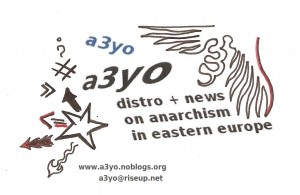ISTANBUL, — Police attacked Kurdish
protesters in Istanbul’s central Dolapdere neighborhood on Saturday
evening, Dogan News Agency reported.
The protesters, demonstrating
against the recent roundup of Kurdish public officials, were dispersed
by the police with tear gas. Up to 10 people were detained in the
aftermath of the clashes and dozens wounded.
Police forces trying to break up the protest were confronted with
fireworks and Molotov cocktails by the crowds gathered near Serdar Omer
Pasa Avenue.
In December, police arrested more than 80 former members of the
pro-Kurdish Democratic Society Party, or DTP,www.ekurd.net as part of
an investigation against the outlawed Turkey Kurdistan Workers’ Party
(PKK) and its offshoots in urban centers.
More than 100 people were charged in the investigation carried out in
several provinces by the chief prosecutor’s office in Diyarbakir.
A number of protests and riots have taken place since then, especially
in Turkey’s mainly Kurdish southeast area (Northern Kurdistan).
The PKK is considered a ‘terrorist’ organization by Ankara, U.S.,
the PKK continues to be on the blacklist list in EU despite court
ruling which overturned a decision to place the Kurdish rebel group PKK
and its political wing on the European Union’s terror list.
"The Kurdish question cannot be resolved without recognizing the will
of the Kurdish people and holding dialogue with its interlocutors, the
kurdish problem and the PKK are bounded together, seperating them will
not develop a solution" the group said.
The PKK has long called on Ankara to halt military operations and agree
to negotiations for a solution, which it says should include official
recognition of the country’s Kurds in the constitution.
The PKK demanded Turkey’s recognition of the Kurds’ identity in its
constitution and of their language as a native language along with
Turkish in the country’s Kurdish areas,www.ekurd.net the party also
demanded an end to ethnic discrimination in Turkish laws and
constitution against Kurds, ranting them full political freedoms.
Turkey refuses to recognize its Kurdish population as a distinct
minority. It has allowed some cultural rights such as limited
broadcasts in the Kurdish language and private Kurdish language courses
with the prodding of the European Union, but Kurdish politicians say
the measures fall short of their expectations.



